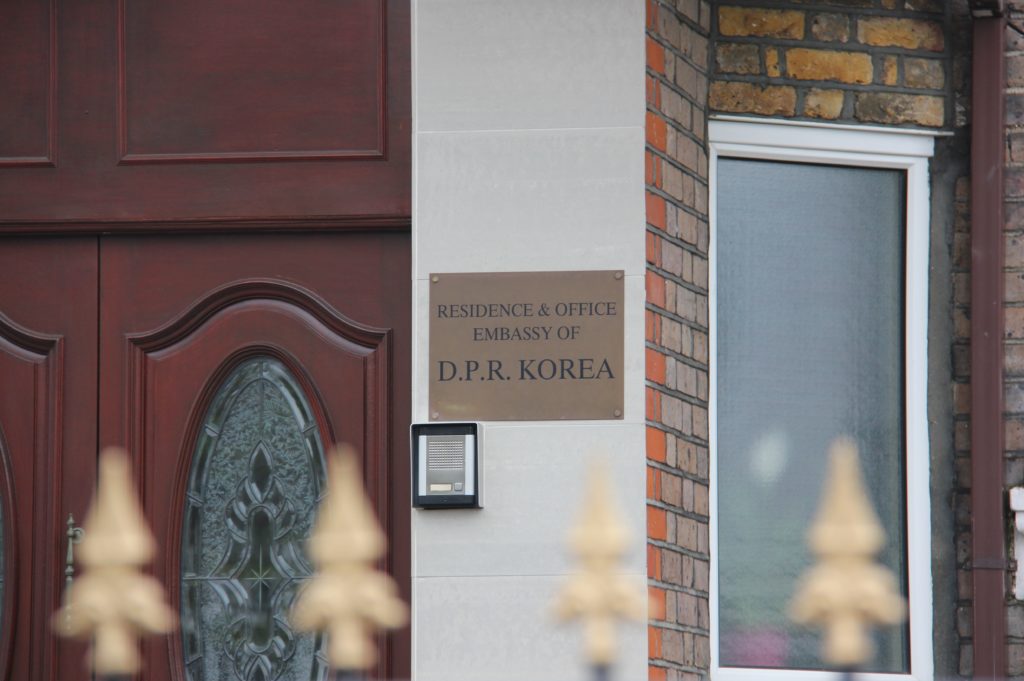The Peninsula
North Korea Loses More Friends and Trading Partners

By Jenna Gibson
North Korea’s decision to shoot a missile over Japan and, just a few days later, to carry out its sixth nuclear test seems to have been the last straw for several countries around the world which had maintained some relations with the reclusive state.
In back-to-back announcements, both Peru and Mexico announced that they would be expelling the North Korean ambassador from their countries, although they stopped short of cutting off diplomatic ties altogether. Both countries said they would maintain diplomatic relations with North Korea, although neither has a physical embassy in Pyongyang.
“It’s inappropriate to maintain relations with that country,” Peruvian Foreign Minister Ricardo Luna told journalists after the announcement. “Though we haven’t broken off ties, by expelling him the level of diplomats in charge of relations is lowered.” According to the Asahi Shimbun, two North Korean diplomats will remain to run the embassy in Lima.
Egypt is also stepping up its pressure on Pyongyang, reportedly planning to cut off military ties with the North. Another Middle Eastern country, Kuwait, has announced that they would be executing a total ban on the shipping of North Korean goods, suspending North Korean commercial licenses, discontinuing North Korean work visas, ending remittances from North Korean workers, blocking North Korean loans from Kuwait’s state bank, and putting into place a total ban on direct flights to and from North Korea, according to Newsweek.
In Southeast Asia, the Malaysian Prime Minister announced during his visit to Washington, DC this week his intention to review the country’s diplomatic and trade ties with the DPRK, which have already been frosty following the assassination of Kim Jong-un’s brother Kim Jong-nam in the Kuala Lumpur airport. And the Philippines suspended all trade with North Korea in an effort to comply with the new UN sanctions — a sizeable move considering that the Philippines was North Korea’s fifth largest trading partner, conducting around 30 million in trade so far in 2017.
Despite its usual “Hermit Kingdom” moniker and increasing pressure to isolate and punish the DPRK for its provocations, North Korea has established diplomatic relations with 164 states, and maintains 48 embassies and six consulates around the world.
Some countries, like the United Kingdom for example, have continued to work with the North in hopes of exposing them to outside information instead of cutting them off. According the UK government’s website, “Our policy is one of critical engagement – making clear the views of the UK and the international community on the DPRK’s nuclear weapons programme and proliferation activities and on its human rights record. We encourage the DPRK to understand and work with the outside world through educational and cultural exchanges.”
Despite the engagement and exchange side of its strategy, the UK has taken a tough stance on the DPRK of late, strongly supporting several rounds of new sanctions in the United Nations and is going ahead with the launch of the BBC’s new Korean language service, which will broadcast news into North Korea (much to the chagrin of the North Korean government).
But these recent moves by Peru, Mexico, and others may signal a tipping point. With an increased pace of missile testing over the last few years and a sharp spike in provocative behavior in the last month, countries around the world must ask themselves if they can still afford to maintain military, economic and diplomatic ties with the regime in Pyongyang. Of course, as long as North Korea can lean on Beijing, which provides the vast majority of trade and aid to Pyongyang, these moves from other countries around the world may only have a small, albeit symbolically significant, impact.
Jenna Gibson is the Director of Communications at the Korea Economic Institute of America. The views expressed here are the author’s alone.
Photo from Laika ac’s photostream on flickr Creative Commons.
